More than 70 years after the Holocaust, hatred, antisemitism, and genocide still threaten our world. The life stories of Holocaust survivors transcend the decades and remind us of the constant need to be vigilant citizens and to stop injustice, prejudice, and hatred wherever and whenever they occur.
This podcast series features excerpts from 48 interviews with Holocaust survivors conducted at the Museum as part of our First Person public program. Listen to these interview excerpts below. You can also watch video recordings of interviews from our First Person seasons here.
First Person is made possible by generous support from the Louis Franklin Smith Foundation with additional funding from the Arlene and Daniel Fisher Foundation.
-
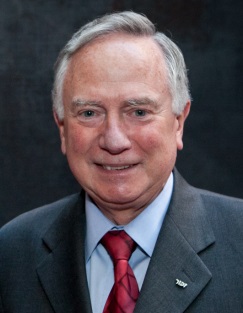
Alfred Münzer: Difficult Decisions in the Occupied Netherlands
May 11, 2010
Alfred Munzer discusses the difficult decisions his parents, Dutch Jews, had to make after learning in early 1941 that they were expecting a child. Germany had invaded the Netherlands in May 1940 and conditions were growing increasingly difficult for Jews by the time Al was born. -
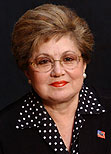
Charlene Schiff: A Daughter’s Separation from Her Mother
May 19, 2009
Charlene Schiff discusses her and her mother’s escape in 1942 from the Horochow ghetto in Poland. Soon after their escape, Charlene was separated from her mother. She spent the rest of the war looking for her mother and hiding for her life in the forests. -
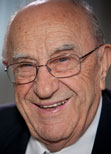
David Bayer: Life After the German Invasion of Poland
June 16, 2009
David Bayer discusses life in his hometown of Kozienice after the German invasion of Poland in September, 1939. Shortly after the invasion David and his family were harassed, humiliated, and subjected to acts of violence by the German occupiers and their collaborators. -
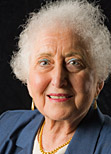
Erika Eckstut: A Young Girl’s Experience in the Ghetto
March 4, 2009
Erika Eckstut discusses the difficulties and dangers of life in the Czernowitz ghetto in what was then Romania (and today is western Ukraine). Erika was an adventurous teenager and her father went to great lengths to protect her and maintain her education. -
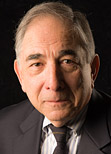
Emanuel (Manny) Mandel: Wearing the Yellow Star as a Child in Hungary
July 22, 2009
Manny Mandel discusses wearing a yellow star as a young boy in Budapest. Hungary fell increasingly under the influence of Germany in the 1930s and joined the Axis alliance in 1940. During this time, Jews in Hungary were increasingly subjected to discriminatory anti-Jewish laws modeled on those in Germany. -
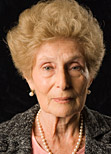
Estelle Laughlin: Post-Liberation Struggles
July 21, 2009
Estelle Laughlin discusses her liberation by Soviet troops in January 1945 from the Czestochowa concentration camp in Poland. In the days immediately following liberation, she and her mother and sister encountered both hostile and helpful people as they traveled through Poland and struggled to rebuild their lives. -

Estelle Laughlin: The Warsaw Ghetto Uprising
August 11, 2010
Estelle Laughlin discusses the Warsaw Ghetto Uprising, when German forces, intending to liquidate the ghetto on April 19, 1943, were stunned by an armed uprising from Jewish fighters. Estelle and her family hid in an underground bunker during the uprising but were eventually captured and deported. -
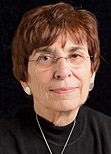
Esther Starobin: Fate of Family that Remained in Germany
June 2, 2009
Esther Starobin and her three sisters left Germany for Great Britain in 1939 as part of a special rescue of Jewish children known as the Kindertransport, or children’s transport. In this episode, Esther discusses how she learned the fate of her parents and brother who remained in Germany after she and her sisters had left. -
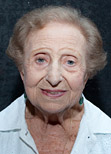
Fanny Aizenberg: A Mother’s Agonizing Decision
March 19, 2008
Fanny Aizenberg discusses life for Belgian Jews after the German invasion in May 1940. Fanny’s husband heeded the call of the Royal Air Force asking for Belgian volunteers while Fanny took care of their young daughter in Belgium. -
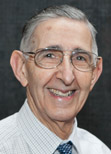
Frank Liebermann: Changes in Germany After Nazi Rise to Power
July 14, 2009
Frank Liebermann discusses life in Germany after the Nazis came to power in 1933. Shortly after taking power, the Nazis began to eliminate individual rights and freedoms for Jews in Germany. This changed daily life for Frank and his family in many ways. Frank's father was a physician and it became increasingly difficult for him to practice medicine after 1933.

